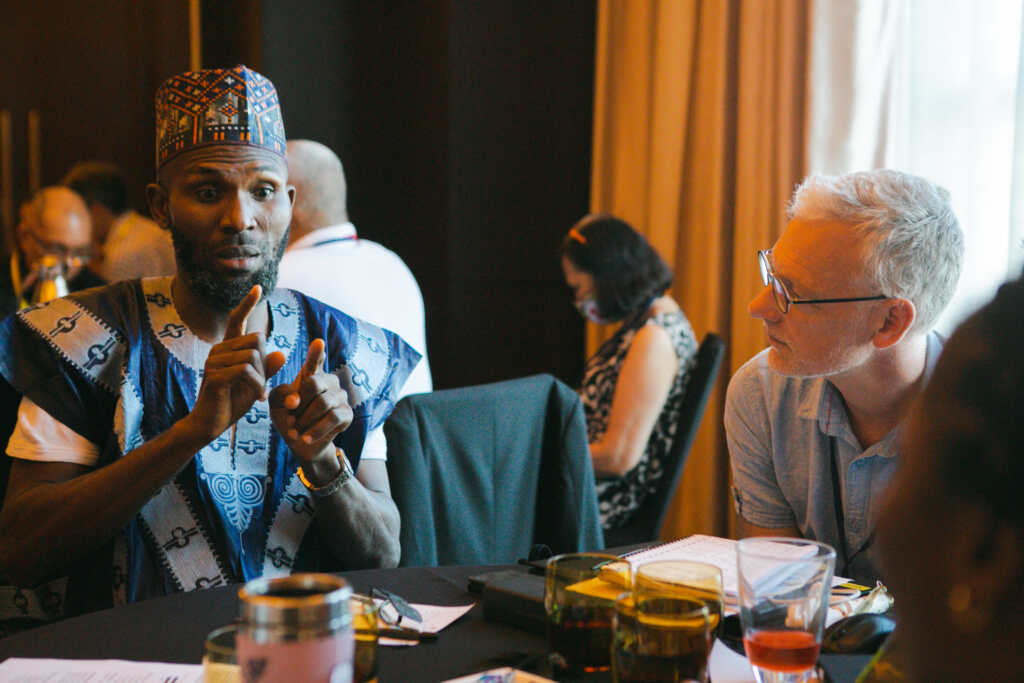
Our Inclusion Advisory Group (IAG) seeks to help make inclusion a reality with humanitarian and development partners. IAG is a global network of advisors, working in partnership with the disability movement on catalytic opportunities that have the potential to spark broader, systemic change for inclusion. Our advisory work takes various forms, including dedicated advisory contracts as well as embedding advisory into wider consortia programming.
Strengthening our approach through localisation and blended advisory teams
In 2022, we continued to strengthen and grow our inclusion advisory programme. In addition to the global work, we renewed efforts to grow advisory capacity across CBM Global. Advisory opportunities increased as advisory work and partnerships with the disability movement are becoming more embedded in country strategic plans. Increasingly, teams have employed dedicated inclusion advisors, who often bring lived experience and strong connections to the disability movement to their roles.
We worked in blended teams from across the wider IAG advisor network, as well as with associates and consultants, to deliver the varying expertise needed for quality, localised advice. Our partners have repeatedly highlighted the value of these blended teams for ensuring the advice is tailored and fit for purpose.
Other snapshots
- We partnered with Abilis to support the Finnish Red Cross and their National Society partners. This first year of our four-year partnership included workshops in partnership with our country team and OPD partners in Zimbabwe.
- Our commitment to supporting the engagement of the disability movement in advisory work continued with the start of our Advisory Capacity development and Exchange (ACE) project, beginning in the Asia Pacific in partnership with regional Organisations of People with Disabilities (OPDs) and the International Disability Alliance.
- The Disability Data Advocacy Workshop for OPDs was developed in partnership with UNFPA Asia and the Pacific, and various global and regional ODPs with the aim of growing the understanding and use of data by a wider group of representatives in the disability movement.
- Our work with UNICEF in Nepal on accessible and inclusive WASH in schools finished with a learning brief that explored the project outcomes and key learnings including, for example, the importance of local resources and multi-stakeholder engagement from the outset.
- We supported UNICEF to develop their Disability Inclusive Humanitarian Action Toolkit. Supporting their programming in 190 countries, this included training material and tools for operationalising UNICEF Core Commitments for children in humanitarian action. We also supported the development of training packages for front line workers across all UNICEF programmes.
- In partnership with World Vision, we have worked to improve livelihoods of people with disabilities living in the Rohingya camps in Bangladesh. CBM Global and its local partner Centre for Disability in Development (CDD) delivered technical advice to all the Australian Humanitarian Partner organisations on disability inclusion.
- Our WFP partnership continues to grow. Read the story.
We will continue to explore partnerships where we can add value at different levels – from community through to global level, with mainstream humanitarian and development partners.
For more information on the work of the Inclusion Advisory Group: www.inclusionadvisorygroup.org
